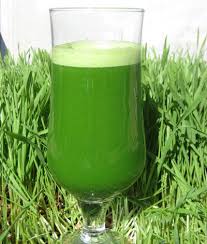
Recently Diagnosed or Relapsed? Stop Looking For a Miracle Cure, and Use Evidence-Based Therapies To Enhance Your Treatment and Prolong Your Remission
Multiple Myeloma an incurable disease, but I have spent the last 25 years in remission using a blend of conventional oncology and evidence-based nutrition, supplementation, and lifestyle therapies from peer-reviewed studies that your oncologist probably hasn't told you about.
Click the orange button to the right to learn more about what you can start doing today.
- You are here:
- Home »
- Blog »
- Healthy Living Products »
- Multiple Myeloma Side Effects- Heal Chemobrain, Dementia
Multiple Myeloma Side Effects- Heal Chemobrain, Dementia

“These satisfactory results confirm the therapeutic importance of acetyl-L-carnitine in the treatment of elderly patients with mental impairment…”
Cognitive decline, chemobrain, post-chemotherapy cognitive impairment, call it what you want- it’s all about brain health. Give your brain what it needs to stay healthy. I think that one of the most challenging multiple myeloma side effects is chemobrain- primarily because MM is an old person’s cancer and we older folks have to work at our brain health.
We multiple myeloma survivors can’t help but wonder if our cognitive decline will worsen with age. I know I do.
According to ConsumerLabs.com and the article linked and excerpted below, acetyl-l-carnitine may improve memory and cognition in older people with age-related memory problems and it may have benefit in mild-cognitive impairment and early Alzheimer’s disease.
Farther down the page I link studies that cite nutrition to either help for hurt cognitive function. Again, its all about brain health.
Doctor’s Best Acetyl-L-Carnitine with Biosint 500 mg has been evaluated and approved by ConsumerLab.com for quality and dose (you must be a member to access the report). Why do I supplement with Doctor’s Best Acetyl-L-Carnitine with Biosint 500 mg”
- Acetyl-l-Carnitine is well-studied, well-researched for its many health benefits
- Doctor’s Best Acetyl-L-Carnitine with Biosint 500 mg has been tested and approved by ConsumerLabs.com–
- Cost-effective as CL found Doctor’s Best Acetyl-L-Carnitine with Biosint 500 mg to be the one of the lowest cost of those ALC supplements tested)
- Doctor’s Best Acetyl-L-Carnitine with Biosint 500 mg is available through Amazon Prime–
I am a MM survivor and MM cancer coach. I approach the management of my chemobrain the same way that I approach the possibility of a MM relapse or any of the other short, long-term and late stage side effects I live with. Feed my brain, my heart, my blood, etc. what they need to stay healthy.
Thank you
David Emerson
- Long-term MM survivor
- MM Cancer Coach
- Director PeopleBeatingCancer
Recommended Reading:
- C-B-D, Inflammation and Alzheimer’s
- Alzheimer’s in your future? Maybe Not…
- Hyperbaric Oxygen Therapy, Alzheimer’s, Dementia
- Choline, Non-Toxic Therapies to Fight Alzheimer’s
Acetyl-L-carnitine in the treatment of mildly demented elderly patients.
“One group of patients underwent therapy with acetyl-L-carnitine, 2 g/day for three months, while the other group was treated with a placebo. The statistical evaluation of the results was carried-out using non-parametric methods (Friedman-Nemenyi two-way ANOVA).
It was possible to affirm that the acetyl-L-carnitine treated patients showed statistically significant improvement in the behavioural scales, in the memory tests, in the attention barrage test and in the Verbal Fluency test. These satisfactory results confirm the therapeutic importance of acetyl-L-carnitine in the treatment of elderly patients with mental impairment, which could be related principally to acetylcholine defects.”
Acetyl-L-carnitine (ALCAR) for the prevention of chemotherapy-induced peripheral neuropathy in patients with relapsed or refractory multiple myeloma treated with bortezomib, doxorubicin and low-dose dexamethasone…
Nutrition and Dementia
Research shows that some foods and supplements increase your risk of dementia and some foods and supplements decrease your risk of dementia- learn which-
No matter how old we are, no matter what our current state of mental health, no matter what our risk of dementia, (dem) we all want to make our brains healthier. I hesitate to even use the word “dementia.” This post is about brain health. We all want to keep both our brains and our bodies healthy.
At least I do. Full disclosure. I was diagnosed with an incurable blood cancer in early 1994. Lots of chemotherapy and a bone marrow transplant left me with chemobrain. It’s been more than 25 years since my chemo so any
- forgetfulness (word search),
- lack of focus,
- difficulty multitasking, etc.
may be typical for my age- I can’t be sure.
If you have been diagnosed with early-stage dementia then you want to slow the rate of dementia. If your brain is already healthy, you want to make it healthier.
The question is, what foods lower my risk of dementia and improve my brain health? The links and the article below will point you in the right direction.
Have you been diagnosed with dementia? Early stage Alzheimer’s? Is there dementia in your family? The fact is that lifestyle (nutrition, exercise, supplementation, etc.) can slow or even reverse symptoms.
Recommended Reading:
- 7 superfoods to beat cancer and dementia
- Green Tea Extract and Alzheimer’s Prevention
- Exercise- Non-Medical Intervention for Alzheimer’s
Fruits, vegetables, lower risk for dementia, increase cognition
Healthy diet reduces risk for dementia
Researchers developed a score based on consumption of cooked fruits and vegetables, fish, legumes, olive oil, as well as raw fruits and vegetables. Eating habits and health status of 7,353 participants were scored at baseline.
They found that after 14 years, there were 906 cases of incident dem, and those with a high adherence to the healthy diet were less likely to develop dem…
MIND diet increases cognition
An analysis of 2,092 participants of the Framingham Heart study who did not have dem. or stroke and followed the MIND diet indicated better Alzheimer’s related symptoms across three different examination cycles from 1991 to 2001.
The findings indicated that for every unit increase in the MIND diet score, there was superior abstract reasoning [β ± SE = 0.11 ± 0.04]; episodic memory [β ± SE = 0.42 ± 0.11]; global cognition [β ± SE = 0.04 ± 0.01]; processing speed [β ± SE = 0.01 ± 0.004], and visual memory [β ± SE = 0.12 ± 0.04], with significant interactions in participants who had the APOE genotype.
Unsaturated fats’ link to dem
A follow-up of 1,890 participants who provided their eating habits as part of a CVD study conducted in the 1960s, who were then assessed for dem. more than 3 decades later showed that total calories consumed, as well as the percent of calories derived from polyunsaturated and monounsaturated fat were not related to developing late-life dem.
Flavonols decrease Alzheimer’s disease risk
Researchers examined dietary assessments and neurological exams of 934 participants, paying particular attention to their baseline dietary intakes of flavonols.
The findings indicated that participants with the highest quintile of total flavonol intake compared to the lowest intake quintile had a decreased rate of Alzheimer’s disease… Individual flavonol intake also suggested a protective effect against Alzheimer’s: kaempferol… isorhamnetin.. myricetin… quercetin..
Omega-3 fatty acids may improve cognition
The impact of a 26-day intervention consisting of omega-3 essential fatty acids, green tea catechins…
Western diet increases risk for Alzheimer’s disease
At the other end of the spectrum, researchers studied the impact of the a less healthy diet using food frequency questionnaires of 468 Memory and Aging Project clinical neuropathological cohort study participants, with the last data collected an average of 5.9 years before the participant passed away.
The findings indicated a more significant association with Alzheimer’s disease pathology in those participants who consumed the Western diet (eg, high fat and fried foods, red and processed meats) including greater neuritic plaque severity scores, higher amyloid level and higher NIA Reagan scores (P = 0.05) vs. those who followed a non-Western diet…”
8 Nutrients for Better Brain Functioning
“The researchers narrowed down the 32 nutritional substances provided by a traditional Mediterranean diet to several that appear to play key roles in healthy brain aging, enhanced cognitive performance, functional brain network efficiency, executive function, and general intelligence.
These include:
- omega-3 fatty acids, found in significant amounts in fatty fish and fish oils;
- omega-6 fatty acids, found in vegetable oils, nuts, seeds, poultry products and whole grains;
- lycopene, found in red pigmented plant foods such as tomatoes and watermelon; carotenoids found in yellow and orange pigmented foods such as sweet potatoes, winter squash and carrots;
- vitamin D, found mostly in fatty fish and fortified dairy products and dairy substitutes such as soy milk; and
- the B Vitamins riboflavin, found in dairy products and enriched grains; folate found in dark leafy greens and other vegetables and fruit; and B12, found in animal products such as meat, poultry, fish, eggs, dairy, and fortified breakfast cereals”



